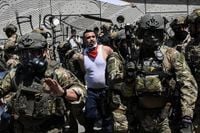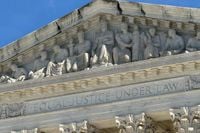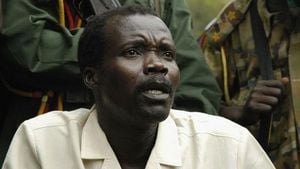The U.S. Supreme Court’s decision on September 8, 2025, to lift restrictions on aggressive immigration enforcement tactics by federal agents in central California has ignited a firestorm of controversy, laying bare deep divisions over race, constitutional protections, and the balance of federal power. The ruling, which allows the Department of Homeland Security (DHS) and Immigration and Customs Enforcement (ICE) to resume stops based on appearance, language, and occupation, has been met with fierce criticism from civil rights advocates, local officials, and dissenting justices, while supporters argue it strengthens law enforcement and the rule of law.
The case at the center of the storm, Vasquez Perdomo v. Noem, originated when lower courts imposed a temporary restraining order on ICE, concluding that the agency had likely violated the Fourth Amendment by targeting suspects primarily on the basis of race, ethnicity, or language. According to ABC News, the Supreme Court’s majority overruled these lower courts without a formal explanation, granting the Trump administration’s request to pause the order and resume its tactics in Los Angeles and surrounding counties.
Justice Brett Kavanaugh, concurring with the majority, articulated the legal rationale that ethnicity alone cannot provide reasonable suspicion for a stop, but can be a relevant factor under existing case law. “Apparent ethnicity alone cannot furnish reasonable suspicion,” Kavanaugh wrote, “under this Court’s case law regarding immigration stops, however, it can be a relevant factor.” He further questioned whether advocacy groups and individual plaintiffs even had standing to challenge the government’s policy in the first place.
The Court’s three liberal justices—Sonia Sotomayor, Elena Kagan, and Ketanji Brown Jackson—issued a blistering dissent. Justice Sotomayor described the decision as a “grave misuse” of the Court’s emergency docket, warning, “We should not have to live in a country where the Government can seize anyone who looks Latino, speaks Spanish, and appears to work a low wage job. Rather than stand idly by while our constitutional freedoms are lost, I dissent.” She argued that the ruling would sweep up not just undocumented immigrants, but also U.S. citizens and legal residents, forcing them to carry proof of their status to avoid detention. “The Government, and now the concurrence, has all but declared that all Latinos, U.S. citizens or not, who work low wage jobs are fair game to be seized at any time, taken away from work, and held until they provide proof of their legal status to the agents’ satisfaction,” she wrote, as reported by Democracy Docket.
In Los Angeles, the decision sent shockwaves through immigrant communities and drew swift condemnation from local leaders. Mayor Karen Bass declared, “Today, the highest court in the country ruled that the White House and masked federal agents can racially profile Angelenos with no due process, snatch them off the street with no evidence or warrant, and take them away with no explanation. This decision will lead to more working families being torn apart and fear of the very institutions meant to protect—not persecute—our people.” California Governor Gavin Newsom echoed these concerns, accusing “Trump’s hand-picked Supreme Court majority” of targeting Latinos and anyone who doesn’t fit a narrow vision of American identity. “Trump's private police force now has a green light to come after your family—and every person is now a target—but we will continue fighting these abhorrent attacks on Californians,” Newsom wrote.
On the other side of the debate, supporters of the ruling, including Department of Homeland Security Assistant Secretary for Public Affairs Tricia McLaughlin, praised the decision as a victory for public safety and legal order. “DHS law enforcement will not be slowed down and will continue to arrest and remove the murderers, rapists, gang members and other criminal illegal aliens that Karen Bass continues to give safe harbor,” McLaughlin posted on X, framing the Supreme Court’s move as essential for the safety of Californians.
National lawmakers also weighed in. U.S. Representative Pramila Jayapal, ranking member of the House Immigration, Integrity, Security, and Enforcement Subcommittee, lambasted the decision as “greenlighting the use of racial profiling by an already rogue administration.” She warned, “Speaking Spanish or looking Latino are now acceptable precursors for law enforcement to stop someone in this country, according to the right-wing justices. This is a violation of our freedoms and a repeat performance of a Supreme Court that is continuing to consolidate power in itself and undermine lower court rulings made by judges appointed by both Democratic and Republican presidents.”
For many on the ground, the impact of the ruling is painfully personal. Pedro Vasquez Perdomo, the named plaintiff in the case, recounted his experience of being detained by ICE without a warrant or explanation. “When ICE grabbed me, they never showed a warrant or explained why. I was treated like I didn’t matter—locked up, cold, hungry, and without a lawyer. Now, the Supreme Court says that’s okay? That’s not justice. That’s racism with a badge,” he told the ACLU Foundation of Southern California. “I joined this case because what happened to me is happening to others every day just for being brown, speaking Spanish, or standing on a corner looking for work. The system failed us today, but I’m not staying silent. We’ll keep fighting because our lives are important.”
Civil rights and immigrant advocacy groups have vowed to continue their legal battle. Mohammad Tajsar, senior staff attorney at the ACLU Foundation of Southern California, described the Supreme Court’s order as a “devastating setback” for communities subjected to stops based on skin color, language, or occupation. “In running to the Supreme Court to request this stay, the government made clear that its enforcement operation in Southern California is driven by race. We will continue fighting the administration's racist deportation scheme to ensure every person living in Southern California—regardless of race or status—is safe.”
The Supreme Court’s order does not end the legal proceedings. As noted by the ACLU, the case will return to federal district court on September 24, 2025, for arguments on whether a preliminary injunction should be issued based on new evidence of government misconduct. Advocates remain determined. “We will continue to seek a preliminary injunction in this case, and we will keep fighting for farm workers and all immigrant communities across the USA,” said UFW President Teresa Romero.
The ruling has also sparked broader concerns about the precedent it sets for constitutional protections. Annie Lai, director of the Immigrant and Racial Justice Solidarity Clinic at the UC Irvine School of Law, warned, “The Supreme Court’s decision deals a devastating blow to communities reeling from the government’s racially discriminatory raids. Through the stroke of a pen, through its emergency shadow docket, the court has written off decades of Fourth Amendment law.”
As the legal battle continues and communities brace for renewed enforcement actions, the Supreme Court’s decision has become a flashpoint in the national debate over immigration, race, and the limits of executive power. For those at the center of the storm, the fight is far from over—and the stakes, they say, could not be higher.






